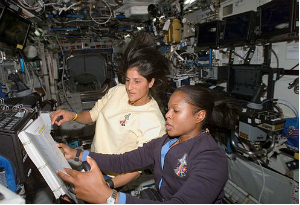Women more likely to get top graduate jobs than men...if they apply
- Emma Finamore
- 30 Jul 2016
Employer investment is helping to address the gender imbalance, research shows. Three quarters of employers have a diversity strategy in place and the majority place gender as their highest priority when compared to other forms of diversity.

The Association of Graduate Recruiters (AGR) is urging more women to apply for graduate schemes as its latest survey shows female graduates are less likely to apply but more likely to land a job than men.
For the first time the AGR asked graduate recruiters about the diversity of their applicants as well as their hires. Its Diversity and Inclusion report published this week reveals that improving the gender diversity of graduate programmes is largely a challenge of attracting women in the first place.
The survey showed that despite women making up 54% of the student population, only 47% apply to graduate schemes.
However, when women do apply they are relatively more successful at getting job offers than men, averaging 49% of hires.
This trend applied across the board – women were consistently more successful in the selection process regardless of which industry they applied to. If women do apply for graduate programmes they have a better chance than men of getting through to the final stages.
The gender diversity challenge varies by sector. While IT and engineering firms average 27% and 25% of female hires respectively, these sectors are doing relatively well compared with the 17% and 15% of female students studying those subjects. Law firms, which average 58% of all female hires, still have a significant gender diversity challenge, as 63% of legal students are women.
Employer investment is helping to address the gender imbalance. Three quarters of the survey respondents had a diversity strategy in place and the majority placed gender as their highest priority when compared to other forms of diversity. Over half of sectors had increased their gender diversity year-on-year, with construction firms increasing the share of women hires by 3% and engineering firms by 4%.
Employers reported that student perceptions of their industry was one of their greatest challenges in attracting a more diverse workforce and 83% called for sector-wide investment to tackle the gender issue.
Stephen Isherwood, chief executive at the AGR said: “Despite investment to develop a more diverse graduate workforce, there remain considerable barriers. Improving gender diversity is less about changing selection processes and is largely an attraction challenge. Many female students don’t apply for the top programmes when they should.
“Graduate employers want to hire women, there are lots of opportunities are out there and these candidates are more likely to succeed, so we need to address why they’re not applying. Industry-wide collaboration to tackle student perceptions will be a key step forward.
“We know women are hugely successful in the selection process, more so than, men. We just need them to realise it. We need to boost confidence and encourage more female graduates to reach their potential.”
Employer investment is helping to address the gender imbalance. Three quarters of the survey respondents had a diversity strategy in place and the majority placed gender as their highest priority when compared to other forms of diversity. Over half of sectors had increased their gender diversity year-on-year, with construction firms increasing the share of women hires by 3% and engineering firms by 4%.
The gender diversity challenge varies by sector. While IT and engineering firms average 27% and 25% of female hires respectively, these sectors are doing relatively well compared with the 17% and 15% of female students studying those subjects. Law firms, which average 58% of all female hires, still have a significant gender diversity challenge, as 63% of legal students are women.
Employer investment is helping to address the gender imbalance. Three quarters of the survey respondents had a diversity strategy in place and the majority placed gender as their highest priority when compared to other forms of diversity. Over half of sectors had increased their gender diversity year-on-year, with construction firms increasing the share of women hires by 3% and engineering firms by 4%.
Employers reported that student perceptions of their industry was one of their greatest challenges in attracting a more diverse workforce and 83% called for sector-wide investment to tackle the gender issue.
Stephen Isherwood, chief executive at the AGR said: “Despite investment to develop a more diverse graduate workforce, there remain considerable barriers. Improving gender diversity is less about changing selection processes and is largely an attraction challenge. Many female students don’t apply for the top programmes when they should.
“Graduate employers want to hire women, there are lots of opportunities are out there and these candidates are more likely to succeed, so we need to address why they’re not applying. Industry-wide collaboration to tackle student perceptions will be a key step forward.
“We know women are hugely successful in the selection process, more so than, men. We just need them to realise it. We need to boost confidence and encourage more female graduates to reach their potential.”
News
- School leaver blog: your first CV and more
- Employers are to be taxed for having Apprentices
- Most young people won’t achieve their salary expectations by the age of 30
- “I said I could speak Ukrainian”: One in six UK workers has lied on their CV
- GCSE Results 2016: STEM Subjects Still Suffering
- Work & youth services vital for tackling knife crime
- Apprentices helped Lewis Hamilton win his fifth Formula One championship
- Record 8% More Students from Disadvantaged Backgrounds Earn University Places
- National Space Academy Higher Apprenticeship Takes Off
- Asda pledges to help women get into apprenticeships